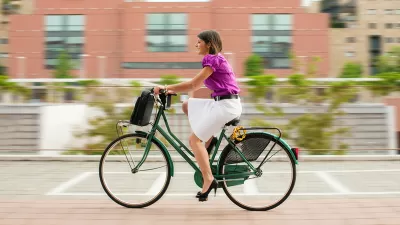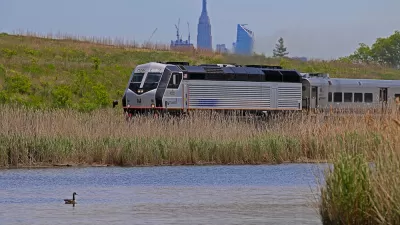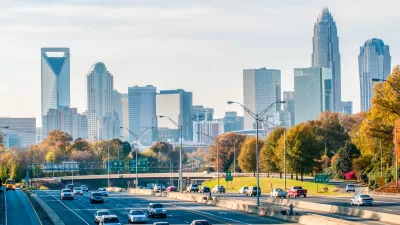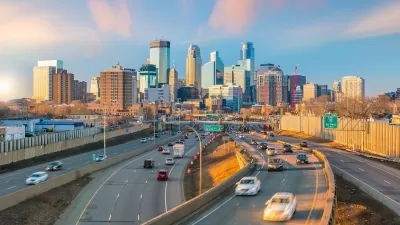The conventional planning wisdom seems to be that long drives are less beneficial to well-being than a short walk. But what about other commuting options?

Last week, I saw something on Twitter I had already seen several times: a link to studies suggesting that people are happier when they can walk to work than when they spend a long time driving to work. This claim strikes me as only slightly less obvious than the claim that water is wet. But at the same time, it raises more questions than it answers. For example:
*Is commuting-related unhappiness limited to driving, or is the long-distance commuter equally dissatisfied whether she bikes, drives, takes a bus, or takes a train? Or to put it another way, does the sheer length of commuting reduce well-being, or is mode choice also an important factor? For example, if a commuter's choice is between a 20 minute drive and a 40 minute subway ride, which is more demoralizing? One British study suggests drivers are as happy or happier than transit users when commuting time is equal; another study disagrees.
*The "short walk/long drive" dichotomy presupposes that work is in a downtown or other walkable neighborhood, while the long drive is from the outer edges of suburbia. But most Americans (including me) work in suburbs. If a commuter's job is in a suburban office park, is he happier living close to the office park, or should he prefer a long ride from a more walkable neighborhood?
*Given that, other things being equal, a short walk is better than a long drive, how should a commuter weigh that factor against other factors? For example, the rent for my current apartment in Manhattan is comparable to the rent for a two-bedroom apartment in Queens, or a three-bedroom house in Suffolk County. As a single person, the extra space is useless to me. But if I had a spouse and a child or two, would the benefits of the extra space outweigh whatever unhappiness I suffered from my commute?
I don't know the answers to any of these questions; I only claim that further research is worthwhile.

Study: Maui’s Plan to Convert Vacation Rentals to Long-Term Housing Could Cause Nearly $1 Billion Economic Loss
The plan would reduce visitor accommodation by 25,% resulting in 1,900 jobs lost.

Alabama: Trump Terminates Settlements for Black Communities Harmed By Raw Sewage
Trump deemed the landmark civil rights agreement “illegal DEI and environmental justice policy.”

Why Should We Subsidize Public Transportation?
Many public transit agencies face financial stress due to rising costs, declining fare revenue, and declining subsidies. Transit advocates must provide a strong business case for increasing public transit funding.

Paris Bike Boom Leads to Steep Drop in Air Pollution
The French city’s air quality has improved dramatically in the past 20 years, coinciding with a growth in cycling.

Why Housing Costs More to Build in California Than in Texas
Hard costs like labor and materials combined with ‘soft’ costs such as permitting make building in the San Francisco Bay Area almost three times as costly as in Texas cities.

San Diego County Sees a Rise in Urban Coyotes
San Diego County experiences a rise in urban coyotes, as sightings become prevalent throughout its urban neighbourhoods and surrounding areas.
Urban Design for Planners 1: Software Tools
This six-course series explores essential urban design concepts using open source software and equips planners with the tools they need to participate fully in the urban design process.
Planning for Universal Design
Learn the tools for implementing Universal Design in planning regulations.
Smith Gee Studio
Alamo Area Metropolitan Planning Organization
City of Santa Clarita
Institute for Housing and Urban Development Studies (IHS)
City of Grandview
Harvard GSD Executive Education
Toledo-Lucas County Plan Commissions
Salt Lake City
NYU Wagner Graduate School of Public Service






























